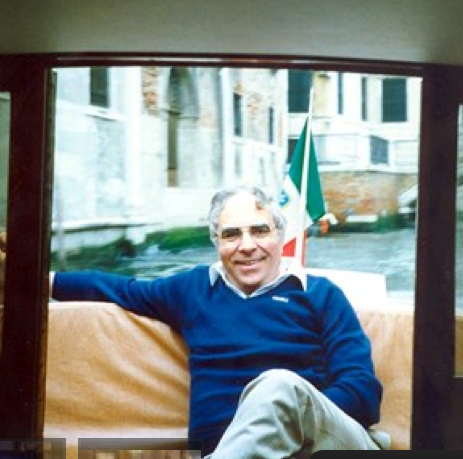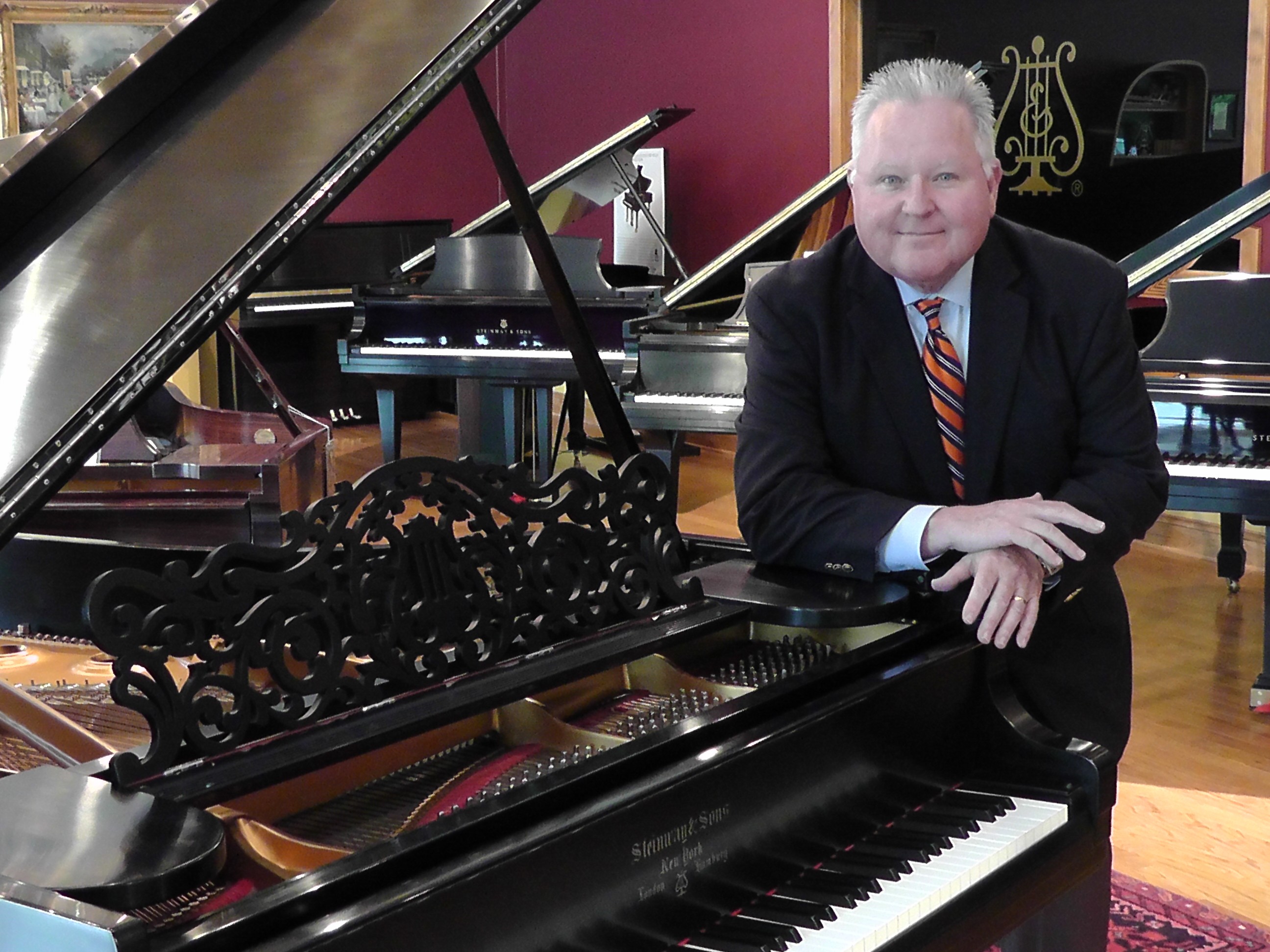Setting the Record Straight about Steinway & Sons Pianos
After surfing the Internet, hearing directly from confused customers, future Steinway piano buyers, music educators and piano technicians, I want to take this opportunity to address false accusations by non-Steinway dealers and rebuilders. They take it upon themselves to post false, undocumented information to the public via Internet web sites or verbal communication about the Steinway piano.
I am John Simon, owner of Steinway Piano Gallery Tucson. I have been an authorized Steinway dealer for over 28 years. Our family owned business was started in 1932 by my father, the late Edward Simon. I was awarded the Steinway dealership in 1983. I am knowledgeable in the history of the Steinway piano and how it is designed and built. Consequently, I know all 12,116 parts that it takes to make a Steinway including how the Steinway piano has evolved since the first Steinway in 1853.
I qualify as an expert in Steinway product because of the extensive training that Steinway and Sons has provided me over the years. With over 50 visits to the factory I have personally witnessed the building of a Steinway piano from the beginning process to the end. This qualifies me to write this article in support of Steinway & Sons, a company that has produced the finest pianos in the world since 1853 and is featured every year in the magazine The Best of the Best.
Since I cannot address every negative comment about Steinway, I will address the most misleading articles about the Steinway piano. In addition I am able to support my comments with written articles or quotes by the people who build the Steinway and design the Steinway including the head concert technician. These false claims produced by non-Steinway dealers and rebuilders are normally supported by the verbage “experts say” or “experts agree”. But the important question is, who are these “experts” and do they have the credentials to support their testimony about Steinway pianos? We certainly know they are not Steinway piano people.
False information:
1. The older Steinways were the best Steinway pianos built. This statement
implies that the new, or today’s Steinway is not as good as the older Steinways.
2. The Steinway piano went downhill after the family sold the business to CBS
Broadcasting Company.
3. A claim that their rebuilt Steinway piano uses genuine Steinway parts.
4. Accusations that Steinway is now contracting with Kawai in Japan and
Pearl River in China to build Steinway pianos.
5. The Hamburg Steinway is better than the New York built Steinway.
Response to #1.
Today 95% of the performing artists choose – of their own volition – to perform on Steinway pianos. Steinway has never paid a performing artist to play their piano. This is by choice.
A quote from Franz Mohr, “As you know I was the Chief-Concert Technician at Steinway for over 30 years and let me tell you that as a musician and technician I have a real love affair with the Steinway piano. It is the best piano ever conceived in the human mind. In all of my travels and personal relationships with the artists, I do not know of one artist today that would prefer an older Steinway over today’s Steinway”.
The famed Steinway Concert piano room in the basement of Steinway Hall, where the artist can try out and pick the Steinway they want to perform on, has no Steinway older than 15 years. There are 50 Steinways in that basement.
Today there are 125 “All Steinway Schools”. Not one of these schools has purchased the older Steinways. All 125 schools purchased the current model Steinway for their institution.
This quote comes from Steinway’s literature called Fable and Fact. Fable has it that “the Steinway piano of today is not as good as that of the olden days.”
Fact is that the Steinway of today is so much better there is no room for comparison at any point. The Steinway piano of the present is at the apex of its greatness. In power, purity and the beauty of tone it far excels the models of previous years. An important development of tone volume or tone power has been achieved within recent years. The action of the instrument is proportionately quicker and more responsive. The repeating quality is nearly electric in effect. Never before was the mechanical work so fine. The materials used were gathered from the four corners of the earth whatever they may cost in endeavor or money. Every part of a Steinway is a known quantity. Every Steinway is made in the Steinway factory. There zealous of family traditions and universal reputation assures a continuous improvement of their product rather than deterioration. Yesterday’s artists demanded yesterday’s Steinways. Today artists demand today’s Steinways.
Response to #2.
In 1972 with an aging ownership and no heirs to the business Henry and John Steinway (I knew both personally) decided in the best interests of the business that it was time to sell. The company was sold to an owner that would guarantee the continued success and financial support of the business.
Unknown to many is that when the agreement was made it included a clause that said, “no matter who owns Steinway & Sons, now or in the future, the owners will never have a say in the process of building the piano.”
This clause was inserted to protect the Steinway product from becoming the normal mass produced “production piano”. It assures that every Steinway piano would be designed and built by Steinway people only, no exceptions. The process of building the piano would continue as usual.
Response to #3.
Non-Steinway dealers and rebuilders often claim that they use genuine Steinway parts. A minority of these dealers and rebuilders use only genuine Steinway parts. A majority use generic parts. If the soundboard has been replaced and the piano was not sent to Steinway to be replaced then the soundboard is not a Steinway soundboard. Steinway will not sell their soundboards to anyone.
Most rebuilt pianos on the west coast market have been sent to Mexico where the labor is cheap and generic parts are being used.
If you purchase a rebuilt Steinway ask the dealer to provide you an itemized list of what was done to the piano and a Certificate of Authenticity. All reputable dealers should offer you one without your asking. This will guarantee 100% refund of your investment if a generic part is found in the piano. A Steinway that has generic parts is not a Steinway!
Please read my Steinway approved article about “Piano Buyer Beware” under instruments on our web site. www.spgtucson.com
Response to #4
In some of these articles it is claimed that the current owners of Steinway have contracted with Kawai (Japan) and Pearl River (China) to build their pianos. This would make one believe that the Steinway piano is being built in other countries. The Steinway & Sons piano is only built in two countries, in the USA since 1853 and in Germany since 1873. They have never been built anywhere else.
Response to #5
The claims that Hamburg Steinways are better than New York Steinways tells me one thing, that these non- Steinway dealers have not been well informed.
To set the record straight the New York Steinway has always been, and is today, the overwhelming choice of artists performing in America. This fact is verified by Steinway Hall on West 57th Street in New York City. There the legendary basement houses over 50 Steinway concert grands including both the New York and the Hamburg Steinways. Artists throughout the world visit this basement on a daily basis to select the Steinway they perform on for upcoming performances. Records prove that the New York Steinway is the overwhelming choice. In fact, approximately 95% of the artists that perform in the United States choose to perform on the New York Steinway. This data was confirmed by the Concert and Artist Department located at Steinway Hall New York.
Michael Mohr, Director Manufacturing/Assembly for Steinway & Sons in New York states, “the choice between the American built Steinway and the German built Steinway is more of a territorial one.” Mr. Mohr says the Hamburg Steinways are more often tuned between the range of A-442 to A-444 to appeal to the European taste for a bright sound. The combination of harder hammers and the tuning pitch create a brighter sounding piano. This is what most Europeans are comfortable and familiar with. The New York Steinway has always used softer hammers and been tuned at A-440 giving it a fuller sound and creating more depth in color, that American audiences and many performing artists prefer. This difference in sound is really the main difference between the pianos, as both are constructed from the same materials using the same patents and techniques that have been handed down and implemented on every Steinway-whether built in Hamburg or New York-for generations.
The statement that one piano is better than the other is false. It comes down to a matter of sound preference.
If you would prefer to purchase the German Steinway today you would have to pay $40,000.00 more to cover the import duties. This is the one reason these non- Steinway piano dealers tell you the German Steinway is better. It is to inflate the Steinway price to a range that they know you will not want to spend, making their mass-produced pianos, by comparison, more reasonable.
There are certainly many non-Steinway dealers and rebuilders that are honest and will present the correct facts. They will also have in writing materials that support what they tell you. Be sure to ask them.
My point is… does a non-Steinway dealer know more about the Steinway piano and its history than a Steinway trained, informed and authorized Steinway dealer? And I guess if they are willing to go that far they are willing to tell you anything.
Please contact me if you have any questions about this response and feel free to ask to view any of the support materials referenced in writing this article.
This article has been approved by Steinway & Sons for accuracy
 A Tribute to Clement D’Avella
A Tribute to Clement D’Avella
